Explore the objects and conveniences that were once absent from daily life, yet people managed to thrive without them. Our grandparents navigated a world without many modern comforts, revealing a simpler way of life that focused on essentials and creativity. Here are 15 items that your grandparents never bought and lived just fine without, shedding light on the evolution of consumer culture.
1. Microwave Oven
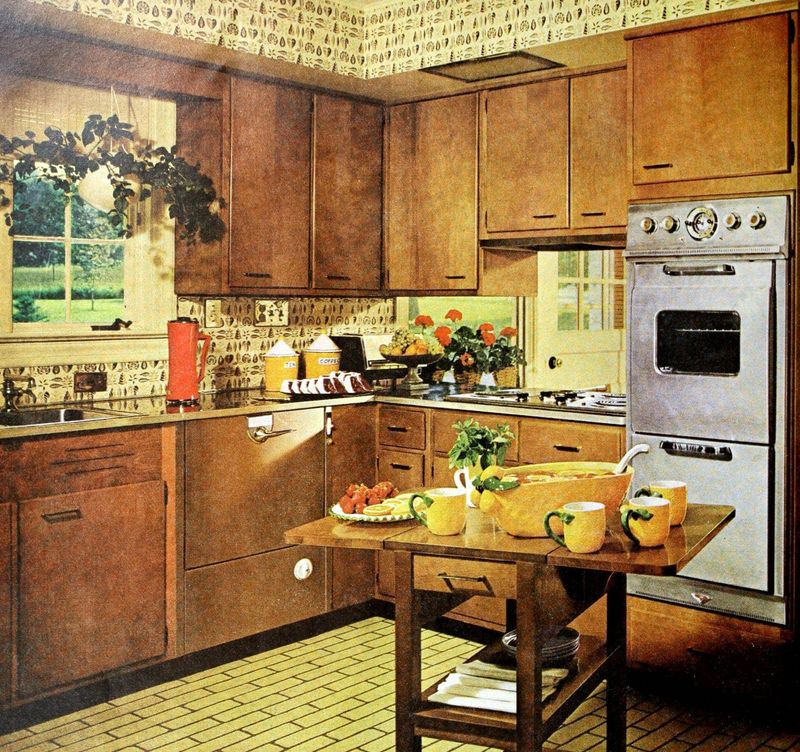
Imagine a kitchen without the comforting hum of a microwave oven. Our grandparents relied on stovetops and ovens for all their cooking needs. The process was longer, but it often encouraged families to gather around the kitchen, sharing stories and laughs.
Cooking was an event, not a chore, with a pace that allowed the aroma of home-cooked meals to fill the house. While today’s convenience is unmatched, the absence of microwaves invited a certain rhythm to daily life.
It was a time when the anticipation of a meal was just as enjoyable as the meal itself.
2. Smartphones
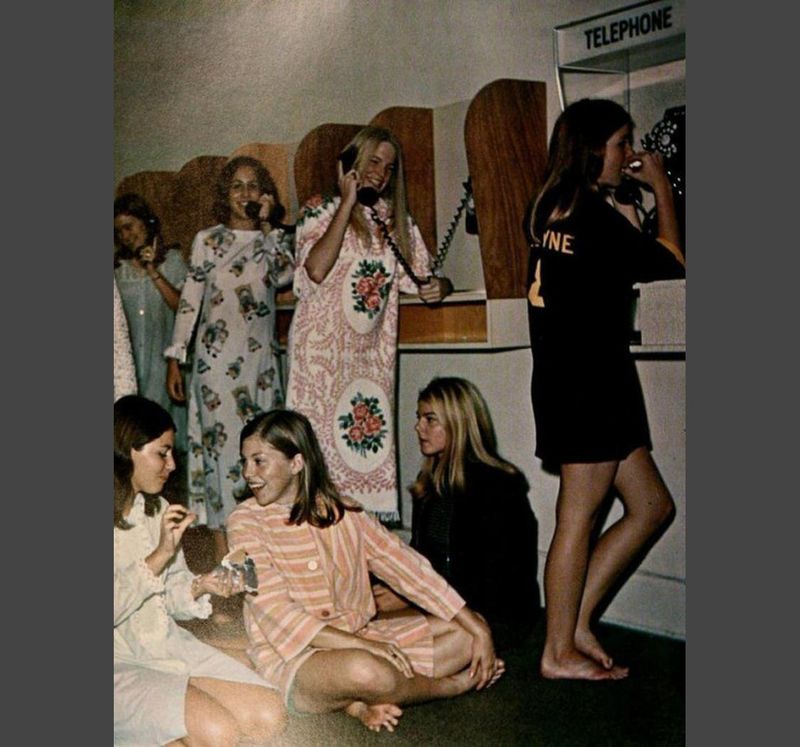
In a world untainted by smartphones, interactions were personal and direct. Our grandparents experienced conversations that weren’t interrupted by notifications or screens.
Social gatherings were intimate, filled with genuine laughter and eye contact, fostering strong bonds within the community.
Without the constant buzz of technology, they found joy in simple pleasures, like writing letters or reading books. The lack of smartphones encouraged a lifestyle where mindfulness was a natural state, and relationships were nurtured with undivided attention and care.
3. Cable Television
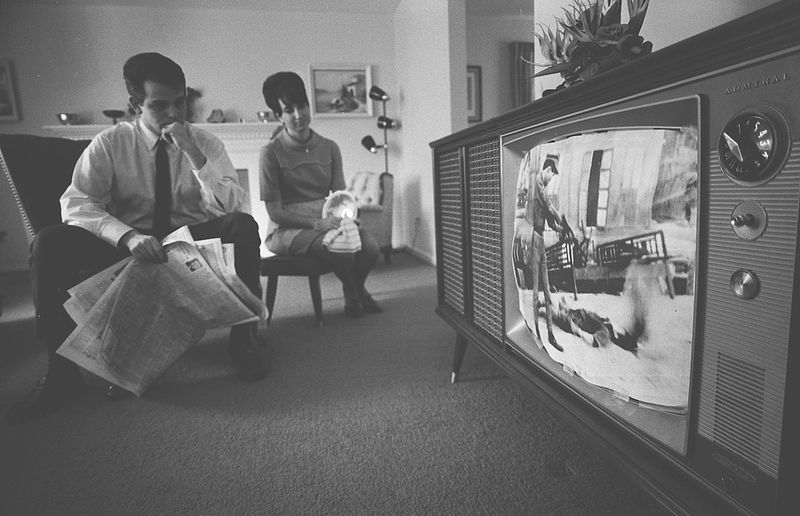
The era before cable television was one of limited channels and imaginative entertainment. Families huddled around a single TV set, enjoying select programs that aired at specific times.
Instead of endless options, viewers anticipated their favorite shows, making it a special occasion. Conversations about the previous night’s broadcast were common, creating a sense of community.
This scarcity led to more outdoor activities and family games, strengthening bonds and encouraging creativity in entertainment. Life without cable meant more time for shared experiences and less for channel surfing.
4. Plastic Bottles

Before the ubiquity of plastic bottles, milkmen delivered fresh milk in glass bottles directly to doorsteps. The clinking of glass was a familiar sound, symbolizing freshness and quality.
Reusable and sustainable, these bottles minimized waste, reflecting a time when environmental concerns were naturally addressed through necessity.
Households took pride in returning clean bottles for reuse, a practice that emphasized responsibility and community ties. The absence of plastic bottles was not a hindrance but an opportunity to engage in sustainable living practices that modern society is now trying to revive.
5. GPS Navigation

Before the age of GPS, traveling was an adventure that required paper maps and a keen sense of direction. Drivers took pride in mastering routes and discovering new paths.
Road trips involved more than reaching a destination; they were journeys filled with scenic detours and unexpected stops. Using maps encouraged teamwork among passengers, turning navigation into a shared experience.
This method fostered a deeper connection with the surroundings and a sense of accomplishment upon arrival. The absence of GPS added an element of spontaneity and exploration to every trip.
6. Credit Cards
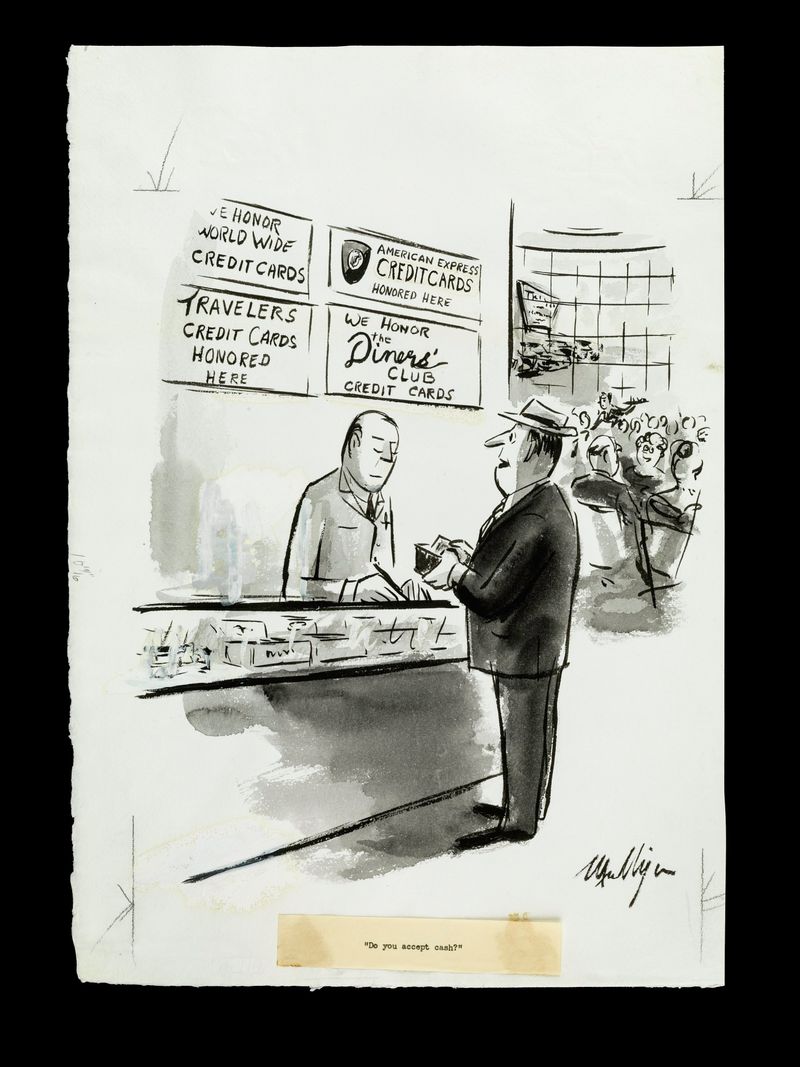
In a cash-driven economy, budgeting was an essential skill our grandparents mastered. Every purchase required thoughtful consideration, knowing that what was spent today couldn’t be borrowed from tomorrow.
The absence of credit cards meant that financial planning and saving were integral to everyday life. This approach cultivated a sense of responsibility and appreciation for money’s value.
Transactions were personal, involving face-to-face interactions with shopkeepers, reinforcing community bonds through trust and mutual respect. The reliance on cash emphasized living within one’s means and avoiding debt.
7. Fast Food Chains
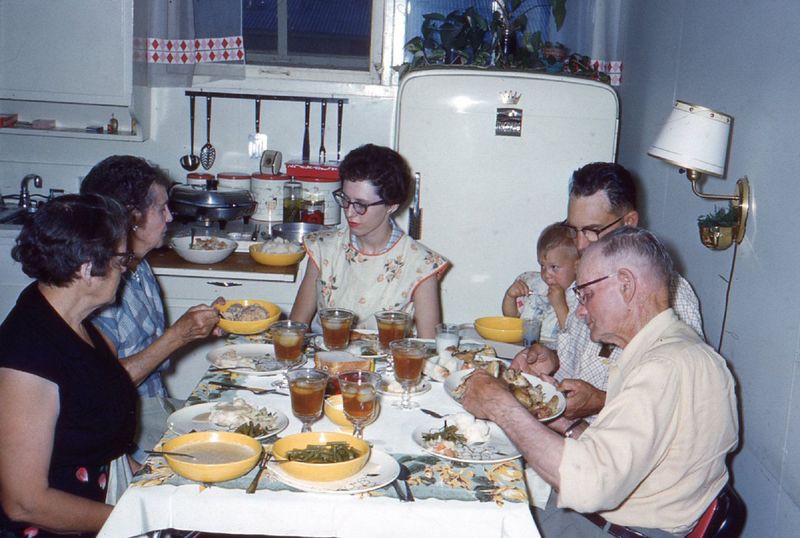
Before the proliferation of fast food chains, mealtime was a cherished ritual at home. Families gathered to enjoy home-cooked meals, prepared with love and attention.
This tradition fostered strong family ties, as everyone had a role in setting the table or washing dishes. Conversations flowed over shared meals, deepening connections.
While fast food offers convenience, the home-cooked experience emphasized health and togetherness. It was a time when food was not just about sustenance but about creating lasting memories and traditions that were passed down through generations.
8. Air Conditioning

Surviving summer heat without air conditioning was a common challenge. Our grandparents relied on ceiling fans, open windows, and shaded porches to stay cool.
This lack of modern cooling systems encouraged outdoor activities, where people sought the breezy comfort of parks or lakesides. It was an era of community picnics and evening strolls.
The absence of air conditioning fostered adaptability and creativity in finding comfort. It also taught patience and resilience, qualities that are invaluable in navigating life’s challenges. Cooling off was as much about social interaction as it was about temperature.
9. Disposable Diapers

Before disposable diapers, cloth diapers were the norm, washed and reused with care. This practice demanded diligence and resourcefulness from parents.
The process of washing and hanging diapers on the line was a familiar, yet rewarding task, symbolizing a commitment to sustainability and thrift.
Though more labor-intensive, cloth diapers reduced waste and were gentler on babies’ skin. It was a time when eco-friendly practices were second nature, reflecting a deep respect for resources. The use of cloth diapers highlighted a preference for durability over convenience.
10. Electric Dishwashers
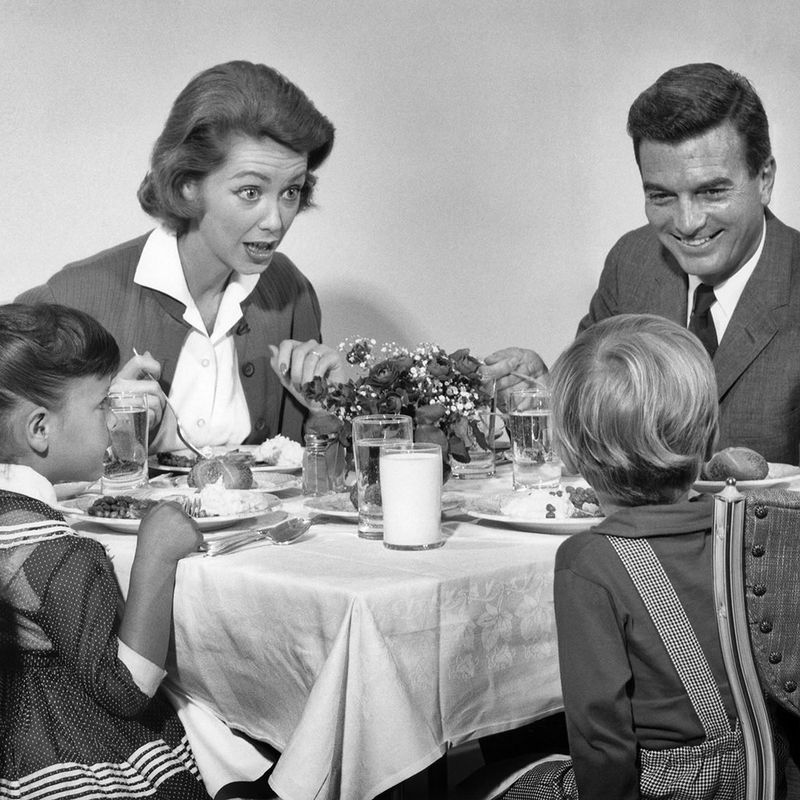
Dishwashing was once a communal activity, a chance for family members to connect over the sink. Without electric dishwashers, each plate was cleaned by hand, fostering teamwork and communication.
This daily ritual was woven into the fabric of family life, a small yet meaningful way to contribute to the household.
While manual dishwashing required more effort, it also provided moments of reflection and conversation. It was an opportunity to teach responsibility and share stories, turning a mundane task into a cherished tradition.
11. Home Computers

Life without home computers was rich with hands-on learning and creativity. Our grandparents relied on typewriters for writing and libraries for research.
Children played board games and explored outdoors, engaging with the world through imagination and physical activity. This era nurtured skills like critical thinking and problem-solving without digital distractions.
Though technology has simplified many tasks, the absence of computers encouraged face-to-face interactions and a tangible connection to the world. It was a time when knowledge was pursued actively, fostering a deep appreciation for discovery.
12. Video Games

Before the allure of video games, children found entertainment in the great outdoors. They played tag, built forts, and explored neighborhoods, developing physical skills and friendships.
These activities encouraged teamwork and creativity, as kids invented games and stories, embracing the freedom of open spaces.
Without screens to captivate their attention, children learned the value of direct interaction and imaginative play. This era of outdoor adventure fostered resilience, communication, and a love for nature, proving that entertainment didn’t require technology, just a bit of imagination and camaraderie.
13. Online Shopping
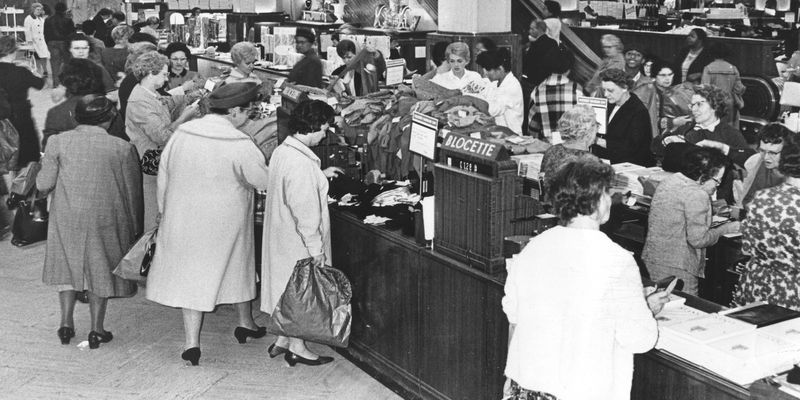
Shopping was once a tactile experience, a chance to touch and see products firsthand. Our grandparents strolled through markets, engaging in lively exchanges with vendors.
This personal interaction fostered community ties and trust, as regular customers were greeted with friendly smiles and familiar faces.
Without the convenience of online shopping, each purchase was thoughtful, requiring a trip to town. It was a social event, full of vibrant encounters and discoveries. This approach encouraged mindfulness and connection, qualities often lost in today’s click-to-buy world.
14. Streaming Services
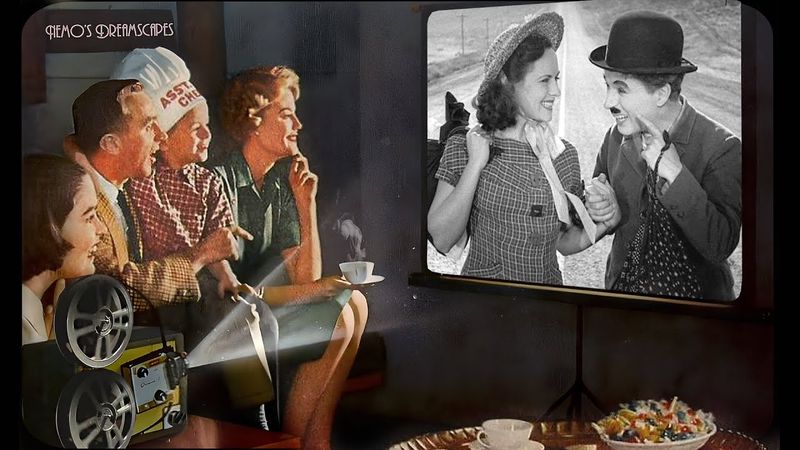
Entertainment was a scheduled event in the pre-streaming era, as families gathered to watch films on projectors or attend cinema shows. This anticipation made every movie night special.
Without the instant access of streaming services, patience was a virtue, enhancing the joy of the occasion. Discussions about films lingered, as there was no pause or rewind.
The absence of streaming meant that entertainment was not a solitary activity but a shared experience, emphasizing togetherness and the communal joy of storytelling.
15. Electric Kettles

Before electric kettles, boiling water was done on the stovetop, a process that required time and care. This simple task was a moment of pause, inviting anticipation as the water slowly came to a boil.
The sound of a whistling kettle was a comforting signal that a warm drink was near, a small pleasure in daily life.
While modern conveniences have sped up this process, the ritual of using a stovetop kettle fostered patience and appreciation for the simple joys of life. It was a reminder that sometimes, the wait is worthwhile.

